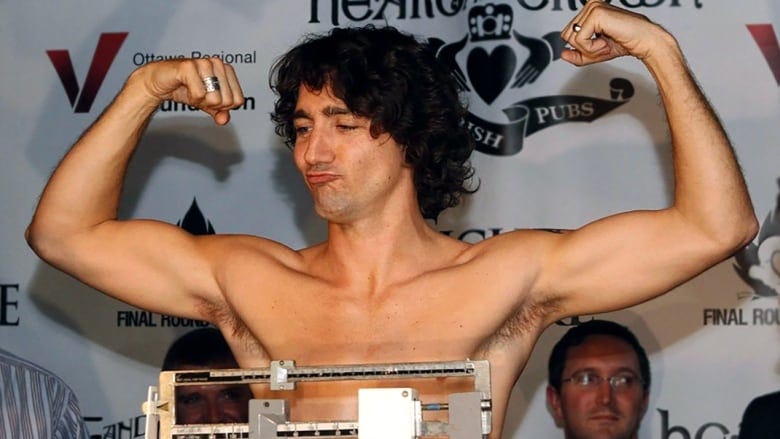Why It’s Time for Canadian Prime Minister Justin Trudeau to Go
The global woke supremo has been in office for 8 years and 235 days.
Like it or not, Prime Minister Trudeau is a progressive populist. His policies and rhetoric often appeal directly to the concerns and values of progressive minorities while alienating large swaths of the general public. His emphasis on social justice and well-scripted public appearances prop him up as a global woke supremo, but he is losing support at home.
Trudeau's tenure has been marred by numerous controversies that far outweigh his few achievements. As Canada struggles with significant challenges at home and abroad, it is glaringly obvious that a change in leadership is urgently needed. Here are seven reasons to consider:
#1 - Ethical Scandals: Trudeau's tenure has been tainted by multiple ethical scandals. The SNC-Lavalin affair, where Trudeau and his office were accused of pressuring the Attorney General to intervene in a criminal case against a major Quebec engineering firm, is a prime example.
“Did the prime minister, someone in his office or other government officials try to pressure Jody Wilson-Raybould when she was attorney general to step in and resolve the corruption and fraud case against SNC-Lavalin Group Inc. in an effort to spare the Montreal-based engineering giant from criminal prosecution?” - CBC
This was followed by the WE Charity scandal, where Trudeau's government awarded a substantial contract to a charity with close ties to his family.
"Shortly after the Liberal government announced it was awarding the sole-source contract to WE Charity, it came under fire from opposition parties over the Trudeau family's close relationship with the organization. Neither Trudeau nor then-Finance Minister Bill Morneau — who also has family ties to WE — recused himself from cabinet discussions on awarding the contract." - CBC
#2 - Economic Mismanagement: Trudeau's economic policies have come under increasing scrutiny. Despite investments in social programs and infrastructure, Canada’s economy has seen ballooning deficits and national debt. Arguments persist that Trudeau’s fiscal management is unsustainable. This has led to an inadequately addressed cost of living crisis, particularly in housing affordability, which has become a critical issue in urban centers across the country. Affordable urban housing in Canada is particularly contentious, as most of Canada’s population lives in urban centers.
#3 - COVID-19 Response: Trudeau's handling of the COVID-19 pandemic has been contentious, to say the least. While Canada’s response to the pandemic was initially praised, vaccine procurement issues and mixed messaging on public health measures drew criticism. The government’s failure to secure a stable and timely vaccine supply led to significant delays in the national vaccination rollout.
Also important to note, during the COVID-19 pandemic in early 2022, protests known as the "Freedom Convoy" erupted. These protests, involving truck drivers and other demonstrators opposed to vaccine mandates and public health measures, led the Canadian government, under Trudeau, to invoke the Emergencies Act on February 14, 2022. This led to the freezing of bank accounts of individuals and entities funding the protests, which created a massive ripple effect, sparking concerns about civil liberties, totalitarian government rule, and individual rights.
#4 - Indigenous Issues: Trudeau’s approach to Indigenous issues, while seemingly supportive, has often fallen short in practice. Despite promises of reconciliation, progress on key issues such as clean drinking water for Indigenous communities and meaningful consultation on land rights has been slow and, in some cases, non-existent. Many Indigenous leaders and communities feel betrayed by Trudeau’s unfulfilled promises and view his government’s actions as a continuation of historical injustices.
#5 - Weak Foreign Policy: Trudeau’s foreign policy is lackluster at best. His government has struggled to define a clear and consistent stance on the global stage. The handling of the Canada-China relationship, particularly regarding the detention of Michael Kovrig and Michael Spavor, highlighted weaknesses in Canada’s diplomatic strategy. Additionally, Canada’s position on climate change, while ambitious in rhetoric, has been criticized for lacking concrete action and effective implementation.
#6 - Disconnected Leadership: There is a growing sentiment among Canadians that Trudeau’s leadership style has become increasingly disconnected from the everyday concerns of citizens. His emphasis on progressive social policies and globalist messaging, while resonating with certain segments of the population, has alienated others who feel their economic and social realities are being overlooked. This disconnect has contributed to a polarization of the Canadian electorate, with increasing regional and ideological divides. Just look at climate change: while ambitious, his lack of concrete and effective action on climate change is staggering.
#7 - Trudeau Fatigue: His tenure has been marked by ethical breaches, economic mismanagement, and unfulfilled promises. More importantly, there is growing fatigue among Canadians and within the Liberal Party itself, after nearly a decade of his leadership. The challenges facing Canada today require a leader who can restore public trust, manage the economy, and effectively address the endless pressing issues.
It’s hard to stay in power for decades, but not so much in Canada, which lacks term limits for PMs. Notable global leaders in modern times who have held power for extended periods include Angela Merkel (16 years in Germany), Vladimir Putin (over 20 years in Russia), and Jean Chrétien (over 10 years in Canada).
As of June 26, 2024, Justin Trudeau has been in office for 8 years and 235 days. It’s quite clear Trudeau loves the attention of being PM; whether or not the country loves him as well is the true deciding factor.



